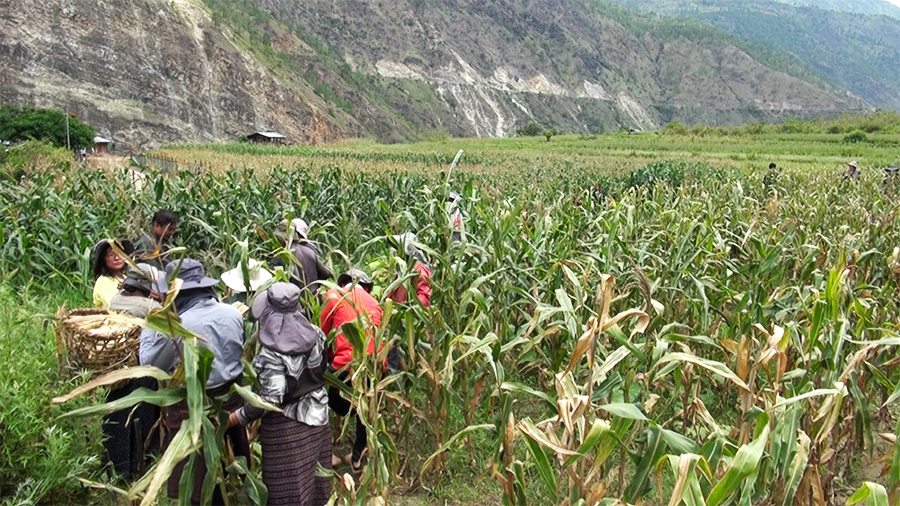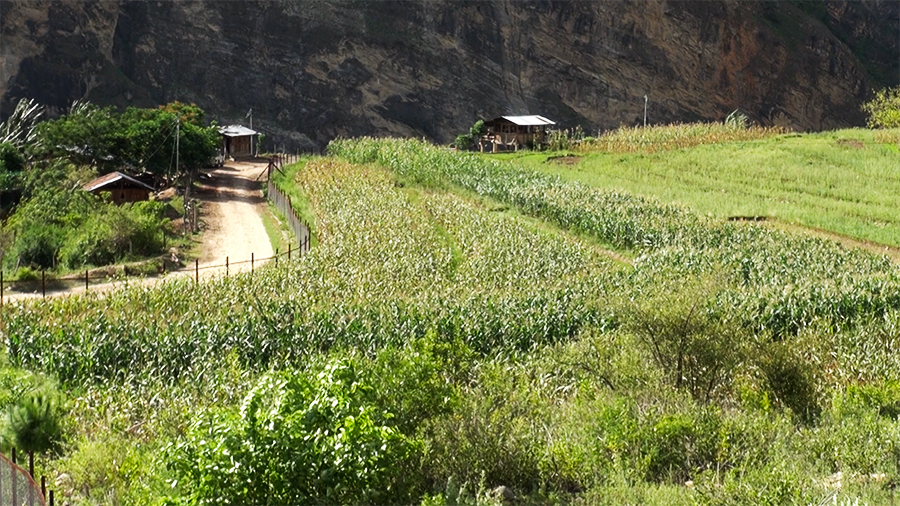 After over five years of research, the Agriculture Research and Development Centre in Wengkhar has successfully produced Wengkhar Hybrid Maize-1 seeds with farmers in Udzorong, Trashigang. This is Bhutan’s first climate-resilient hybrid maize. It thrives in high temperatures, requires less water, and yields higher crops.
After over five years of research, the Agriculture Research and Development Centre in Wengkhar has successfully produced Wengkhar Hybrid Maize-1 seeds with farmers in Udzorong, Trashigang. This is Bhutan’s first climate-resilient hybrid maize. It thrives in high temperatures, requires less water, and yields higher crops.
 This is the second year farmers of Lamzang in Udzorong Gewog are growing Wengkhar Hybrid Maize-1 for seed in collaboration with the Agriculture Research and Development Centre in Wengkhar.
This is the second year farmers of Lamzang in Udzorong Gewog are growing Wengkhar Hybrid Maize-1 for seed in collaboration with the Agriculture Research and Development Centre in Wengkhar.
The hybrid maize plants grown for seed are small and short. They were harvested recently and will be cured and processed into seeds.
 In the adjacent fields, the farmers are growing the hybrid maize plants, using the seeds produced last year. They are tall and can withstand heat and drought, where water or rainfall is limited.
In the adjacent fields, the farmers are growing the hybrid maize plants, using the seeds produced last year. They are tall and can withstand heat and drought, where water or rainfall is limited.
“These days, we are experiencing heat due to rising temperatures. This hybrid maize can resist the heat, and also grow in places with less water or rainfall,” said Kinzang Thinley, Senior Agriculture Officer with ARDC, Wengkhar, Monggar.
He added that the hybrid seeds were developed after observing falling maize yields across Asia, mainly due to heat stress.
It also grows faster, reducing pest risks and boosting yields. The strong green stalks stay fresh during harvest, making them useful as cattle fodder.
“Initially, farmers were hesitant to grow hybrid maize for seed. But after seeing last year’s results, they became more interested. We also noticed a clear improvement in yield compared to older varieties. From next year, I plan to continue seed production with local farmers, after discussing with the gewog administrations,” said Narayan Subha, the gewog agriculture extension supervisor, Udzorong Gewog.
 Some landowners have now received training in hybrid maize seedling production. Going forward, they’ll work with the National Seed Centre to produce the hybrid seeds.
Some landowners have now received training in hybrid maize seedling production. Going forward, they’ll work with the National Seed Centre to produce the hybrid seeds.
The Centre developed it in collaboration with the International Maize and Wheat Improvement Centre, with funding support from CARLEP.
Bhutan now has five improved maize varieties and one hybrid maize seed.
Sonam Darjay, Trashigang
Edited by Sangay Chezom








